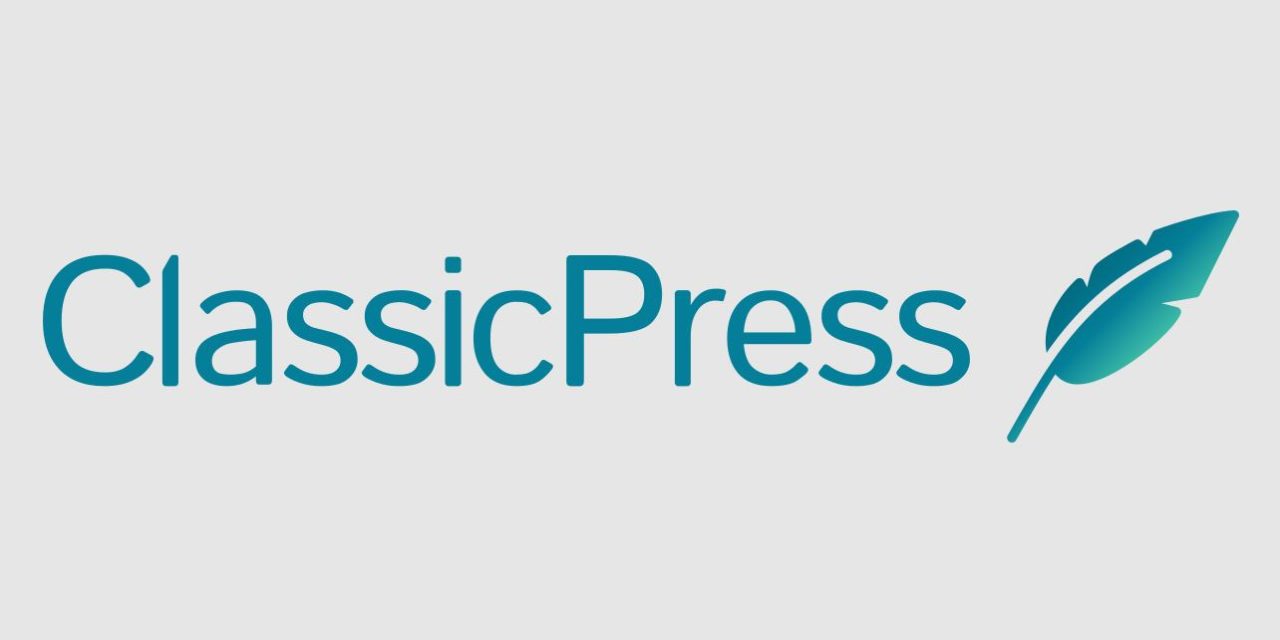Recent turbulence in the ClassicPress community has resulted in the directors resigning and new leadership installed. The WordPress fork is run under a non-profit organization called the ClassicPress Initiative. It supports work on a pared back version of WordPress, based on version 4.9, that uses the TinyMCE classic editor as the default option with no block editor.
The project appeared to be on the rocks a week ago when its directors published their resignation with a call for replacements.
“Over the last few days it has become crystal clear that the community feels that the Directors of the ClassicPress Initiative are now hindering the progress of the ClassicPress Project,” former director Wade Striebel said.
“As such, Michelle and I have decided to resign our positions as part of the non-profit organization that oversees the ClassicPress community, the ClassicPress Initiative. This will allow others to step in and move the ClassicPress Project forward.
“Both Michelle and I have been here since the beginning of ClassicPress, back almost four years ago. While it is sad to be leaving the community we saw grow and evolve over time to be the most successful fork of WordPress in years, it is time for a new direction under new governance.”
ClassicPress’ monthly costs in 2021 averaged $99.74 USD with donations averaging $10.34 per month. When the directors announced their intention to resign, there was $352 in the bank account. The project published its 2021 profit/loss statement from its 2021 taxes.
Over the weekend Striebel identified Viktor Nagornyy, William Patton, and Tim Kaye as the initiative’s new directors.
Community financial support for the project does not seem strong, but the prospect of getting people to do the work of maintaining the fork in addition to managing its administrative overhead has been a greater challenge.
“We’ve had committees with elected members, we had team leads, and we ended up here because they failed to work, people failed to do the work they said they would, and disappeared,” new diretor Nagornyy said. “We reached this point after grueling four years, including pandemic.
“If we do the same thing again, we will end up with the same results. Nobody wants that. We want CP to succeed, so we need to make changes with community’s support and input. We don’t want to do it alone, we need community’s support. It’s a community project.”
Nagornyy published a new project plan today, confirming that the Classic Press Initiative will continue to be the owner of the project infrastructure.
“This ownership model eliminates any one individual from being in charge and prevents egos from getting in the way,” he said. “This model also provides limited liability to everyone involved.”
As the project is barely scraping by financially, Nagornyy identified fundraising as its top priority, along with cutting expenses, and simplifying server infrastructure. He was also adamant about not having the full responsibility of running the project fall on the directors again.
“We are not in favor of having a rigid committee (or ‘council) structure,” Nagornyy said. “ClassicPress did try the ‘committee’ approach between 2018-2020. Unfortunately, it did not work out as expected and caused frequent disagreements between the members. Voting on issues became divisive and was one of the primary reasons for project stalling.
“As members left or became less active with the pandemic in full swing, the committees were dissolved, and directors took on the responsibilities no one wanted to keep the project alive.”
ClassicPress appears to be in a tenuous position as its new directors assume responsibility for the organization. The project is struggling to get people to contribute and will need to hit its fundraising goals fairly aggressively to ensure individual members do not become financially responsible for its support.
“History should not repeat itself, and we must learn from it,” Nagornyy said. “Making decisions is worthless if those decisions cannot or are not acted upon. It is instead much more important that we focus on encouraging and facilitating people to actually contribute.”











